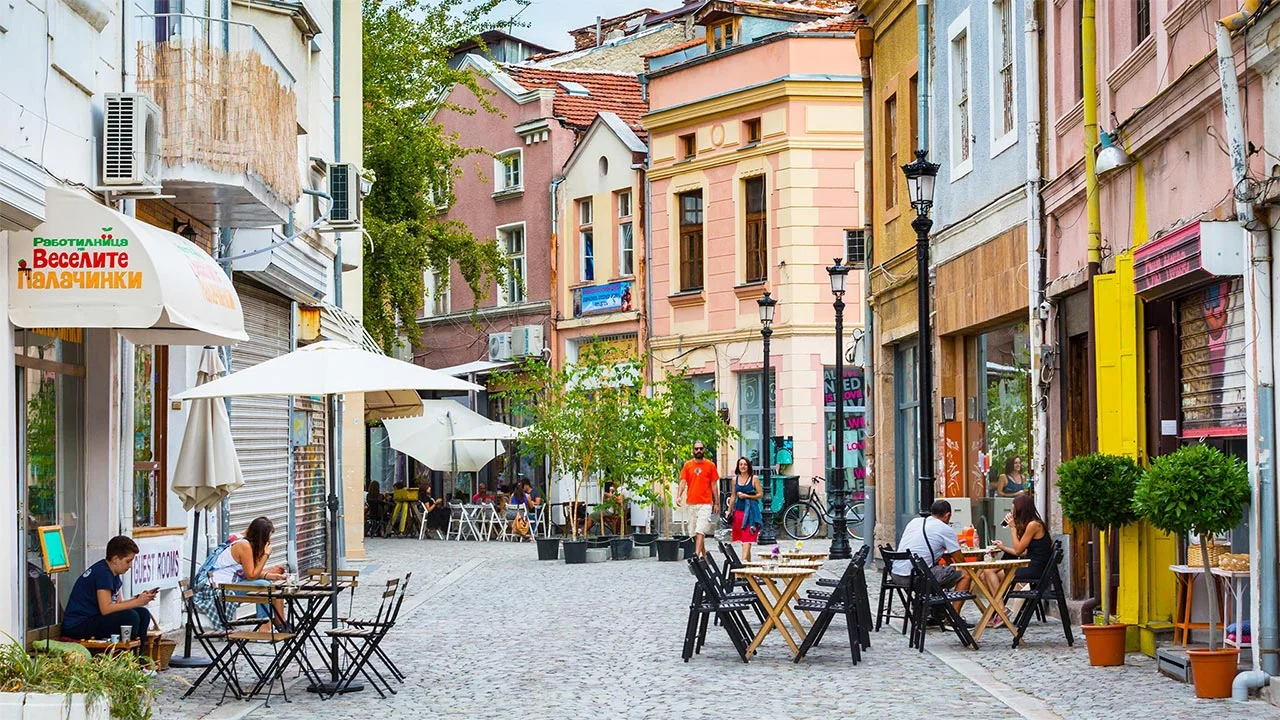Polish citizenship: how to apply for foreigners in 2026
Polish citizenship opens access to a large number of opportunities offered by the EU passport....

The Bulgarian government fully supports immigrants, giving them the opportunity to live in a safe and relatively inexpensive EU country. Thanks to a loyal migration policy, qualified professionals, investors, businessmen, family members of citizens and residents, freelancers, retirees and other categories of foreigners can move to Bulgaria and become its permanent residents.
Obtaining a residence permit in the Republic of Bulgaria is available after 5 years of residence in the country to law-abiding and financially secure foreigners with no criminal records. Sometimes permanent residence permits are granted immediately, without opening a residence permit, for example, to spouses of citizens and key investors.
Some categories of immigrants have the right to obtain a Bulgarian passport immediately, without prior residence in the country with residence permit and permanent residence permit, demonstration of income level and language testing. With the participation of Relocation Compass specialized lawyers, the processing of a second EU citizenship takes 4-12 months with minimal cost and effort.
In order to move to Bulgaria, you must have a means of livelihood, a place to live in the country and health insurance, document your eligibility for one of the authorization documents (residence permit / permanent residence card or passport) and provide a certificate of no criminal record.
The pros of immigrating to Bulgaria include the following:
Apart from advantages, there are also disadvantages of immigration to Bulgaria. Salaries here are an order of magnitude lower than in the countries of Western Europe – about 1000 EUR on average, and the minimum salary is 480 EUR. At the same time the amount of income tax does not change depending on the amount of profit. Prices for buying real estate due to the developed tourism here are high – on average 1500-2000 EUR per square meter, which is not comparable with the minimum income level of the population.
Most often foreigners move to Bulgaria in connection with work, study or opening a business, which allows them to obtain a temporary residence permit. It is important to decide on the basis for registration of a residence permit, collect documents, organize transportation in advance and take care of a place to live in the republic. To go to Bulgaria for permanent residence, you need to:
There is an easier way to move to Bulgaria – simplified citizenship of one of the EU countries. This retains your current citizenship and gives you more rights. You can find out more details from Relocation Compass international law specialists.
Bulgaria grants residence permits to those who are entitled to a pension in their country of origin or permanent residence. The payments received must cover the planned costs of staying in the republic. As of 2024, the minimum pension in Bulgaria is 980 leva, which equals about 300 EUR per month. The program is valid indefinitely: immigrants can re-issue a residence permit on this basis an unlimited number of times.
Pensioners can apply for a residence permit in the general procedure, i.e., after at least 5 years of permanent legal residence in Bulgaria. The standard requirements to the applicant remain. The program is often chosen by wealthy older people who want to live near the sea or balneological resorts. There are no restrictions on citizenship: a pensioner from any country in the world can move to Bulgaria.
Immigrants who stay in Bulgaria illegally can be forcibly deported from the country according to a court decision. This applies, among others, to foreigners who have not renewed their residence permit or have lost the basis for holding it, as well as those who violate the visa-free regime. Until the judgment and the day of deportation, the violator may be detained. The costs of deportation are paid by the foreigner himself or by his representative in Bulgaria. An illegal immigrant may be banned from re-entering the republic and other Schengen states.
For a comfortable emigration from other countries to Bulgaria you should consider such points beforehand:
A simple and successful move to Bulgaria is possible with the support of Relocation Compass. Specialists will assist in selecting the most suitable immigration option and accompany you at every stage.
Foreigners are mostly positive about life in Bulgaria. The strengths of living in the country include low prices for food and rent, pleasant climate and clean air (especially in the maritime regions), friendly mentality of the population, rare cases of crime. Immigrants note a decent level of education, low cost of education in private universities, high-quality, despite slow, service in modern clinics on the basis of a single medical insurance. They also note low taxes and a loyal immigration policy.
Judging by the reviews, the biggest disadvantage is relatively low salaries. Unemployment is growing in the regions, so competition for well-paid positions is noticeable. Due to the mass migration of eastern Europeans after 2022, real estate rental prices have risen significantly here, and finding a suitable apartment in the season is doubly difficult even for a high cost. Most houses do not have central heating, and the high cost of energy limits their use in winter. Also, foreigners note the poor condition of roads and low level of digitalization.
For a comfortable immigration to Bulgaria, it is best to use the support of international law specialists. This will help to minimize time and effort. Relocation Compass’ specialized lawyers select optimal programs for relocation to Bulgaria, taking into account the client’s plans and situation, and provide comprehensive support until a positive result is obtained.
If you plan to obtain permanent residence (PR) in Bulgaria, you should prepare for new regulations expected in 2026. Here are the key points:
If you meet the current eligibility requirements, it’s advisable to start the process before 2026, to benefit from the existing, more lenient conditions.
Some categories of foreigners can apply for a residence permit without the need to obtain a residence permit beforehand. Such categories include:
In order to obtain a permanent residence it is necessary to reside in Bulgaria continuously for 5 years with a temporary residence permit. Absence from the country is allowed, but not more than 30 months in total for the entire five-year period.
No, knowledge of the Bulgarian language is not necessary to obtain a permanent residence. Requirement on the language appears only when applying for citizenship.
Yes, but you will need to go through the procedure again. If the permanent residence was lost due to long absence or overdue documents, it is possible to restore the status through the residence permit and proof of grounds (for example, investment, marriage, kinship or relocation).
Yes, as of January 1, 2025 Bulgaria is a full member of the Schengen area. This means that all internal border checks between Bulgaria and other Schengen countries have been abolished, including air, sea and land borders. Thus, holders of permanent residence status in Bulgaria can travel freely throughout all Schengen countries without the need for additional visas, provided that the rules of stay are followed – no more than 90 days in any 180-day period.
